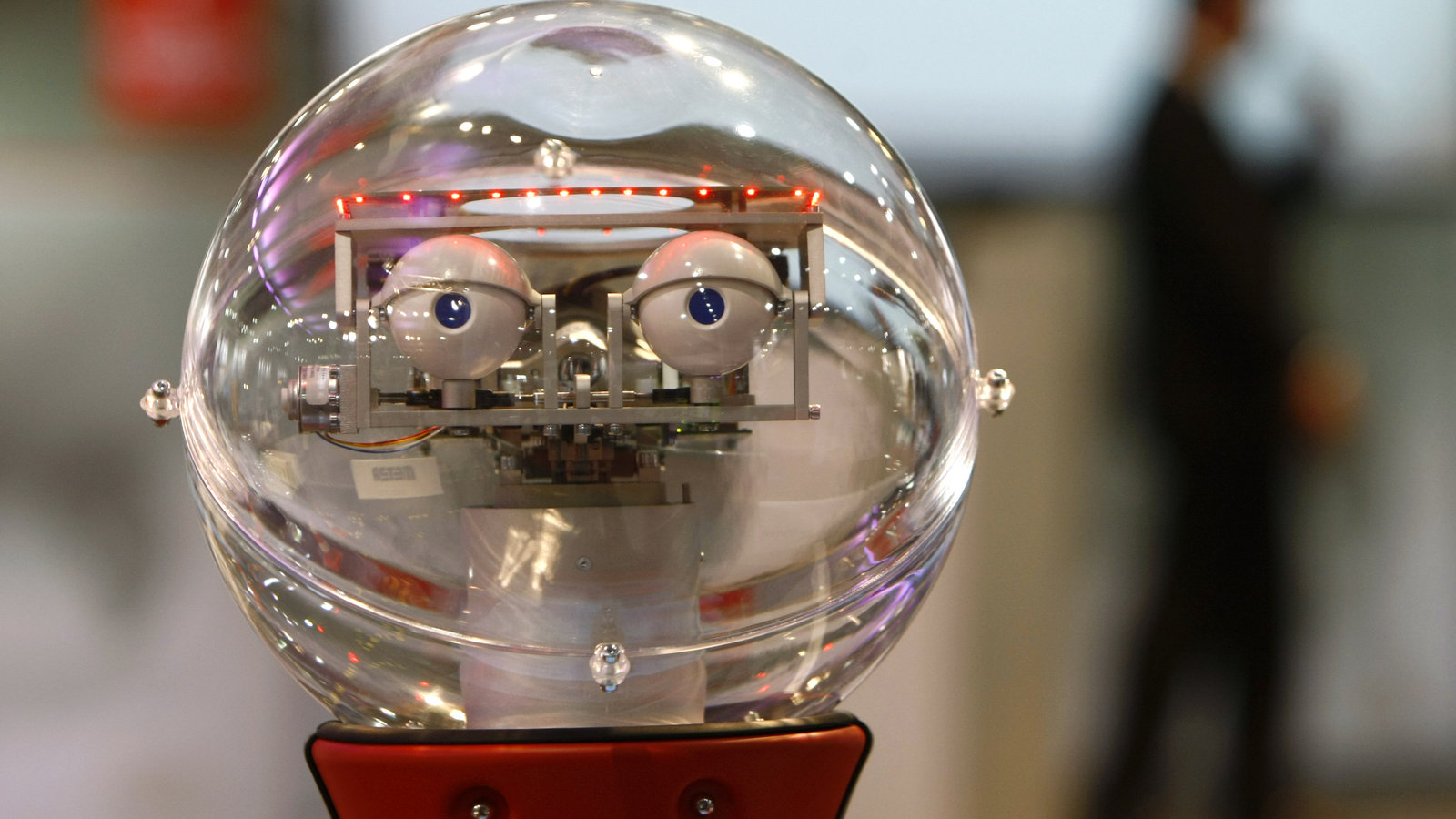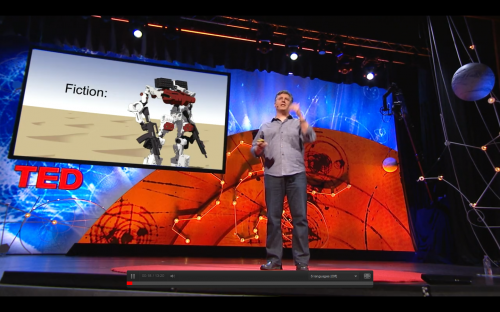The robots are coming, and they’re coming fast. In this fascinating Fresh Air interview, tech writer John Markoff talks about several ways that intelligent machines are likely to profoundly change our lives over the next few years. From self-driving cars to peopleless warehouses, intelligent machines will play major roles in shaping our world. He makes a critical distinction between artificial intelligence (AI) and intelligence augmentation (IA), two schools of research that take radically different approaches to the relationship between humans and machines. As a bonus, the interview ends with what is probably the funniest robot song ever recorded.
npr.org/sections/alltechconsidered/2015/08/20/433000643/how-close-are-we-really-to-a-robot-run-society
Category: 15.6 The Robot Revolution

More jobs every day are being automated—done by machines rather than humans. In this thought-provoking Fresh Air interview, Silicon Valley executive Martin Ford says that all kinds of jobs—even many that we assume are machine-proof—are threatened by advances in hardware and software. The implications for our economy and our society are far-reaching.
http://www.npr.org/sections/alltechconsidered/2015/05/18/407648886/attention-white-collar-workers-the-robots-are-coming-for-your-jobs
 Drones are, in essence, flying robots, capable of carrying out all kinds of tasks, from acts of war to acts of art. This Huffington Post article focuses on the use of drones to capture video footage that would be difficult or impossible to get by conventional means.
Drones are, in essence, flying robots, capable of carrying out all kinds of tasks, from acts of war to acts of art. This Huffington Post article focuses on the use of drones to capture video footage that would be difficult or impossible to get by conventional means.
 The robot drone is rapidly changing the face of war—and peace. In this gripping TED talk Daniel Suarez describes the very real—and very scary—threats robotic weapons pose to civilized society. He makes a compelling case for an international treaty on robotic arms control and a global ban on killer robots.
The robot drone is rapidly changing the face of war—and peace. In this gripping TED talk Daniel Suarez describes the very real—and very scary—threats robotic weapons pose to civilized society. He makes a compelling case for an international treaty on robotic arms control and a global ban on killer robots.
http://www.ted.com/talks/daniel_suarez_the_kill_decision_shouldn_t_belong_to_a_robot.html
forbes.com/sites/parmyolson/2012/06/14/cyber-security-and-the-rise-of-the-silicon-based-life-form
If we think of digital technology as another life form, how does that change the way we think about, and interact with, that technology? This Forbes editorial suggests that it might improve the way we handle computer security.
Personal robots are coming. This fascinating NPR story gives an audio peek inside the labs that are working hard to bring robots to everyday people.
wbur.org/npr/155278207/you-know-you-want-one-personal-robots-not-ready-for-you-yet
npr.org/2012/03/12/148293470/drones-over-america-what-can-they-see
Computer-piloted drones have become part of life—and death—in war zones. But , according to John Villasenor, we’ll soon be seeing drones in American skies performing non-military tasks. As he explains in this NPR Fresh Air interview, a flurry of ethical, social, legal, and political questions will arrive with those drones.
Here’s a quote from the first edition of Digital Planet (then called Computer Currents), written almost two decades ago:
“It seems likely that, at some time in the future, machines will be able to do most of the jobs people do today. We may face a future of jobless growth–a time when productivity increases, not because of the work people do but because of the work of machines. If productivity isn’t tied to employment, we’ll have to ask some hard questions about our political, economic, and social system…”
Back then, this prediction seemed farfetched to most people. This NPR story about the Race Against the Machine conference suggests it’s not farfetched anymore.
www.npr.org/2011/11/03/141949820/how-technology-is-eliminating-higher-skill-jobs
Conversations with Robots
Be careful–you may be falling in love with a software robot. This episode of Radiolab—NPR’s clever and entertaining broadcast/podcast—explores many ways people talk to machines, including those alluring bots that populate online dating sites. Eliza, Furbie, Clever Bot, Bina—they’re all talking to us, and we’re listening. Radiolab puts it all in perspective in this fascinating program.
[ted id=1109]